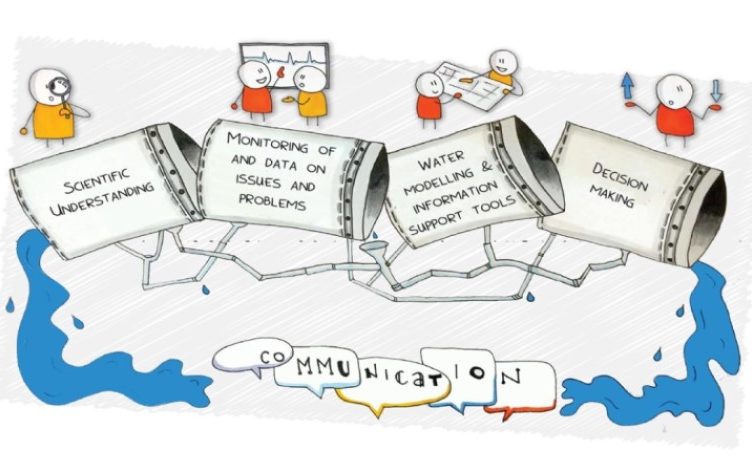
05/12/2024
Event Summary: Overview of water quality modelling projects from the Queensland Water Modelling Network with Callym Dunleavy
Read more
In June and July the QWMN sought and evaluated a set of applications for small grants to provide capacity building services to the Queensland water modelling and use sector. The funding was made available for capacity building and allied engagement projects that catalyse and accelerate the implementation of actions to address skill, knowledge and broader workforce development challenges across the QLD water modelling and use sector.
In July 2019 the QWMN released a Skills and Knowledge Audit Report (accessible via here and termed the Audit Report for short). This Report provided a characterisation of workforce structure (in terms of job roles) then assessed recruitment and capability gaps and issues, both current and emerging, across the whole of the Queensland water modelling and use sector.
To turn the gaps and issues in recruitment and capability identified by the Skills and Knowledge Audit Report into actions a second follow up piece of work was commissioned by the QWMN. This involved convening a Cross Sector Skills and Knowledge Audit Working Group to assess and prioritise the most significant challenges raised by the Skills and Knowledge Audit Report, identify how those challenges might be addressed through specific actions before outlining the potential role of different employer types in doing so. The recommendations of that Working Group were captured in a Skills and Knowledge Audit Response Report (accessible via here and termed the Response Report for short). This Report identified skill and knowledge challenges but also a set of broader workforce development challenges.

The four winning capacity building small grant applications have now been announced and are moving from their design and preparation phases to implementation and delivery.
Kate O’Brien (UQ) and Matthew Adams (QUT) – ‘Building capacity in evaluating and communicating models and model performance’
Kate and Matthew have designed and will be running a set of 3 interactive online workshops over October and November with the aim of equipping participants with an improved ability to evaluate and communicate model performance and output, including quantifying uncertainty and an appreciation on how to incorporate these insights in new modelling projects. Registrations details for these workshops will be made available very soon.
Chris Tanner (CRC Water Sensitive Cities) – ‘Developing a quantified case study for a water sensitive approach to infill development’
Chris, leading a team from the CRCWSC, will run a collaborative workshop in October with key government, research and industry stakeholders as a key step towards creating a fully quantified infill urban development case study to guide future designs, typologies and densities.
Sunny Yu (Griffith University) and Katrin Sturm (SEQwater) – ‘Development of a set of best practice guidelines for the application of water models to inform quantitative microbial risk assessment projects’
Through a series of expert interviews, industry-wide surveys and a key stakeholder workshop, this project will conduct a scoping study to better refine the content and resourcing needs to advance the development and publication of a best practice guideline for the application of hydrodynamic models to support Water Treatment Plant Health Based Target requirements as outlined in the Draft ADWG guidance materials (2018).
Joseph Guillaume (ANU) and Tony Weber (Alluvium) – ‘Building capacity for decision making in the face of multiple plausible futures through adoption and adaptation of appropriate decision frameworks’
This project is part of a much longer term endeavour to better embed decision frameworks within modelling and decision making processes faced with multiple plausible futures. To contribute to doing so the project will synthesise theoretical and case study materials in a form conducive to creation of products for training and awareness raising. The collected materials will be provided through a simple but attractive website with a Creative Commons Attribution license, explicitly encouraging collaborative development of added value products.